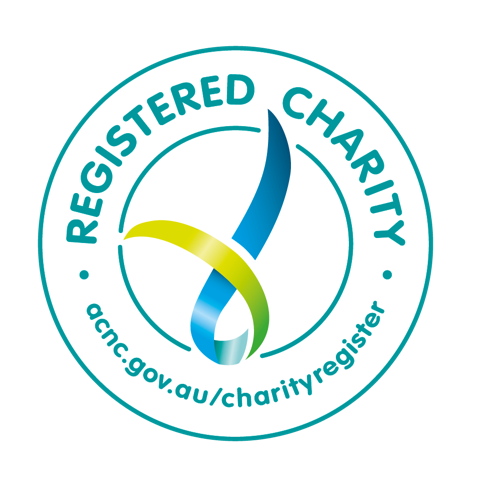- LOGIN
- CONTACT US
- SUBSCRIBE
-
Search this website (jump to search)
- Home
-
About us
- About us. Our vision, our mission and our goals
- Board. Meet our Board of Directors
- Governance. Carers Australia is dedicated to effective and transparent governance
- Our CEO. Introducing our CEO
- Our staff. Our Staff
- History of the carer movement. The long road to improve the lives of carers
- Employment. Working at Carers Australia
- Contact us. Get in touch with Carers Australia
- About carers
- NDIS & Carers
- Work & Care
- How we work
-
International Conference
- International Conference
- Conference videos
- Keynote PowerPoints
- Concurrent Sessions 1 & 2 (Wednesday)
- Concurrent Sessions 3 & 4 (Thursday)
- Concurrent Sessions 5 & 6 (Friday)
- Program Handbook
- Concurrent Session Abstracts. The PRELIMINARY Concurrent Session Program contains information on plenaries and concurrent sessions at the 7th International Carers Conference, from Wednesday, 4 October 2017 to Friday, 6 October 2017.
- Keynote Speakers
- Conference photos
- Sponsors
- Exhibitors
- Newsletters
- Subscribe
- Contact Us
- News & media
- Resources
Forums
Connect with people who understand what you are going through, seek advice and surround yourself with support. We're free, anonymous, and professionally moderated 24/7.
- 47,612Members
- 1,226,952Posts
- 1,400,000Visitors
Healthy relationships: What are the signs?
- Mark Discussion as New
- Mark Discussion as Read
- Float this Discussion for Current User
- Favourite
- Subscribe
- Printer Friendly Page
- « Previous
- Next »
- Mark as New
- Favourite
- Subscribe
- Get link
- Flag for Moderator
- Delete Post
13 Feb 2018 12:41 PM
13 Feb 2018 12:41 PM
Re: Healthy relationships: What are the signs?
![]()
you are more than welcome...
we have many parallels...
it is also such a relief to be able to express some of that pain and speak up.....receiving understanding and a loving response at the end of it..
this is what healthy relationships are....
gosh we worked it all out @Former-Member
- Mark as New
- Favourite
- Subscribe
- Get link
- Flag for Moderator
- Delete Post
13 Feb 2018 12:48 PM
13 Feb 2018 12:48 PM
Re: Healthy relationships: What are the signs?
We did @Former-Member lol 😂. I love how I can talk openly and honestly with you and be my real self without judgement. You are a treasure. Hope all is going okay with you - you sound good 💕
- Mark as New
- Favourite
- Subscribe
- Get link
- Flag for Moderator
- Delete Post
13 Feb 2018 03:14 PM - edited 13 Feb 2018 06:27 PM
13 Feb 2018 03:14 PM - edited 13 Feb 2018 06:27 PM
Re: Healthy relationships: What are the signs?
I read the articles Cherrybomb who created this topic thread shared on here about signs of healthy and unhealthy relationships etc. I found this very helpful.
As a carer of my daughter who is diagnoised with borderline personality disorder and bi-polar, who is now living with me again - I found the article from the National Alliance on Mental Illness on "Maintaining healthy relationships" particularly helpful. The advice given by them for Carers of loved ones with mental illness to maintain a healthy relationship were:-
1. Don't buy into stigma - learn to separate the person from the illness. The person is not their illness.
2. Understanding confusing behaviour - some of their behaviour is part of their illness and there can be a need to accommodate this but this does not excuse cruel, aggressive or violent behaviour.
3. See opportunities for Improvement - working on behaviours - I.e. Agreeing to work on better, open communication
4. Get support from other people - you and your loved one will cope better with an expanded support system. Including strengthing connections with family and friends
5. Expect decent behaviour - making sure the loved knows we see them as a whole person and knows you expect them to live to standards where you can live with each other well with mutual respect and safety. (Setting boundaries)
6. See things from the others perspective - learn as much as we can about the mental illness.
7. Learn to communicate effectively - especially important when mental illness is in the mix
8. Use simple, direct and clear language of what you want and why - I.e. could you join me for a walk as I like the company (as opposed to "you never spend time with me").
I found this article interesting in caring and from the perspective of also having suffered a mental breakdown in the past.
- « Previous
- Next »
My favourites
Members feature!Log in to add spaces, events and discussions to your favourites.
Resources
Guidelines and technical support
Crisis support
SANE services are not designed for crisis support. If you require immediate support, please contact one of the service providers below.
Members online
No one is online right now. Hold tight and someone will be along soon.
If you need urgent assistance, see Need help now
For mental health information, support, and referrals, contact SANE Support Services
SANE Forums is published by SANE with funding from the Australian Government Department of Health
SANE - ABN 92 006 533 606
PO Box 1226, Carlton VIC 3053

